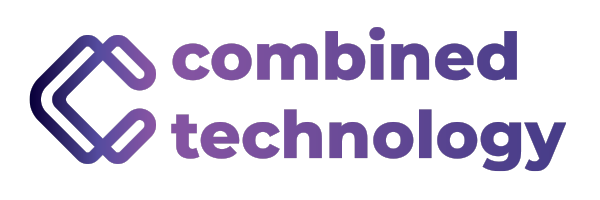Businesses increasingly rely on technology to streamline operations, enhance security, and boost efficiency. However, managing IT in-house can be both costly and complex. This is where Managed IT Service Providers (MSPs) come in. The right MSP can optimize your IT infrastructure, strengthen cybersecurity, and provide ongoing support. But with so many options available, how do you choose a provider that aligns with your specific needs?
This guide will break down the key factors to consider when selecting an MSP, from service offerings to pricing models, security measures, and industry expertise.
Common Digital Transformation Challenges
Organizations embarking on digital transformation often encounter several key challenges, including:
- Complexity of Technology – The complexity of new technologies can pose significant challenges in adoption and implementation during digital transformation. Businesses must navigate issues related to agile decision-making, automation, and the integration of advanced technological solutions. Ensuring smooth digital adoption requires leveraging enterprise software, flexible architecture, and digital adoption platforms. Additionally, organizations should prioritize green computing practices, energy consumption optimization, and life cycle assessments to enhance sustainability efforts. Effective technology assessment and legacy application modernization are critical steps in overcoming technological complexities.
- Legacy Systems and Integration Issues – Many businesses still rely on outdated systems that do not seamlessly integrate with modern technologies. This lack of compatibility can cause inefficiencies, data silos, and operational disruptions. Upgrading or replacing these systems is often expensive and time-consuming, requiring careful planning and strategic implementation to ensure a smooth transition.
- Cybersecurity Risks – With increased digital adoption, the risk of cyber threats and data breaches also rises. Businesses must invest in robust cybersecurity measures, including encryption, multi-factor authentication, and proactive monitoring, to safeguard sensitive information.
- Skill Gaps and Talent Shortages – Organizations may struggle to find skilled professionals capable of managing advanced digital tools. The demand for expertise in cloud computing, AI, machine learning, and cybersecurity often exceeds the available talent pool. To bridge this gap, businesses must invest in continuous employee training, partner with IT service providers, or adopt automation solutions to compensate for workforce shortages.
- Budget Constraints and ROI – Financial challenges, including budget limitations and difficulties in measuring return on investment, can impede digital transformation efforts. Organizations often underestimate the costs associated with technology procurement, system integrations, and staff training. Effective cost management, strategic allocation of financial resources, and leveraging managed IT services can help businesses prevent overspending and ensure optimal investment returns.
- Change Resistance – Organizational culture can pose a significant barrier to digital transformation, as employees and stakeholders may resist adopting new technologies. This resistance often stems from a risk-averse culture, reliance on legacy applications, and a lack of digital resilience. Overcoming these challenges requires fostering a culture of experimentation and agile methodologies. Implementing a comprehensive change management strategy, including clear communication, structured training, and incentives, can help ease the transition. Encouraging adoption of new tools and embedding a digital-first mindset within the organization ensures that teams remain adaptable and supportive of transformation efforts.
- Regulatory Compliance Challenges – Navigating complex regulatory environments is a crucial aspect of digital transformation. Businesses must ensure compliance with various data protection laws, such as GDPR and HIPAA, industry-specific standards, and evolving regulatory frameworks. Proper data handling practices, compliance audits, and having a dedicated compliance team or officers can help mitigate legal risks. Investing in legal expertise and aligning digital strategies with consumer rights and compliance requirements ensures that organizations avoid penalties and maintain trust with stakeholders.
How Managed IT Services Address These Challenges
Managed IT services provide businesses with the expertise and support needed to navigate digital transformation effectively. Here’s how they help overcome these challenges:
- Seamless Integration – Managed IT providers ensure that new digital solutions are smoothly integrated with existing systems, minimizing disruptions.
- Enhanced Cybersecurity – With proactive security measures, managed IT services protect businesses from cyber threats, ensuring compliance and data integrity.
- Access to Skilled Professionals – Managed IT services bridge the talent gap by providing experienced IT experts who can manage digital transformation initiatives.
- Cost Efficiency – With predictable pricing models, businesses can better control IT expenditures and avoid cost overruns.
- Change Management Support – Managed IT services facilitate employee training and change management strategies to enhance adoption rates.
Uncertain about which IT service model fits your business best?
Our team is here to help you navigate the options and answer all your questions so you can make the best decision for your business. Get in touch for a free assessment today!
The Role of Digital Transformation Managed Services
Digital transformation managed services play a crucial role in enabling businesses to modernize operations without disruptions. These services provide end-to-end solutions that support businesses in overcoming operational, security, and technical barriers during digital transformation. By leveraging managed IT services, organizations gain access to cutting-edge technology, expert guidance, and proactive strategies tailored to their unique needs.
For a more in-depth look at the benefits and costs of managed IT services, as well as why they are essential for businesses, check out this comprehensive guide: What Are Managed IT Services? Benefits, Costs & Why Your Business Needs Them.
Key components of digital transformation managed services include:
- Cloud Computing Solutions – Enabling scalable and flexible infrastructure for digital transformation, allowing businesses to leverage cloud-based platforms for enhanced collaboration, data storage, and efficiency.
- 24/7 IT Support – Ensuring continuous monitoring, real-time troubleshooting, and proactive maintenance to minimize downtime and maintain business continuity.
- Data Analytics and AI Implementation – Helping businesses make data-driven decisions by integrating advanced analytics and artificial intelligence into operations for improved efficiency and innovation.
- Network Management and Security – Providing comprehensive network monitoring, threat detection, and cybersecurity solutions to safeguard critical business assets against potential cyber threats.
- Compliance and Risk Management – Ensuring businesses adhere to industry standards and regulations, reducing risks associated with data governance, privacy laws, and IT compliance.
Research indicates that over 61% of C-suite executives recognize digital transformation as a leading priority within their organizations. This growing emphasis underscores the necessity for businesses to adopt effective strategies, including managed IT services, to drive successful transformation efforts.
By implementing digital transformation managed services, businesses can optimize IT operations, improve agility, and accelerate growth while mitigating the risks associated with large-scale digital initiatives.
Overcoming digital transformation challenges requires a strategic approach and the right expertise. Managed IT services provide businesses with the necessary support to navigate complex technological shifts, ensuring a successful transformation. By leveraging digital transformation managed services, companies can enhance efficiency, security, and overall growth, positioning themselves for long-term success in the digital era.
Cybersecurity remains a critical component of digital transformation, as businesses face increasing threats in the digital landscape. Partnering with industry experts like Combined Technology ensures organizations have access to cutting-edge IT solutions, helping them safeguard critical assets, maintain compliance, and mitigate risks effectively.
Get in Touch with Us

Safeguard Your Business with Tulsa's Top Managed IT Provider
At Combined Technology, we provide a flexible, tailored approach to meet your evolving IT needs. Safeguard your business against emerging threats with our expert-managed IT services and customized cybersecurity solutions.





